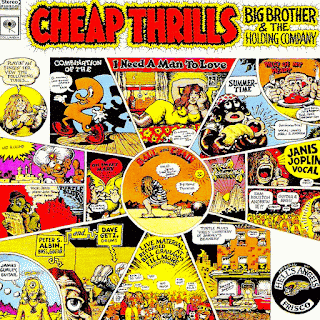Pearl:(1971)
These two albums represent the beginning and the end of Janis Joplin. Now, before I get into this, let me state, I find Janis voice to be grating after an extended listening period. However, I find her story compelling in the same way I find Elvis' latter day tragedy of life compelling. I've always been drawn to those sorts of characters. Anyway... Cheap Thrills is an album I dig the hell out of... Big Brother were a killer band. They were equally the best band to challenge and raise Janis up, and her biggest opponent for star of the stage. No doubt this is what led to their split. Pearl on the other hand has Janis placed squarely in the center of the stage. This album is a postcard from an artist that was snuffed out too soon.
A side story: I grew up in the woods of Mississippi. During hunting season when gun shots seemed too close to the house, my mother would set the stereo speakers, big 1970's ones, out on the back porch, and blast Pearl at full volume. I'm sure hunting was not good on those days.
















































:format(jpeg):mode_rgb():quality(90)/discogs-images/R-770347-1300406109.jpeg.jpg)